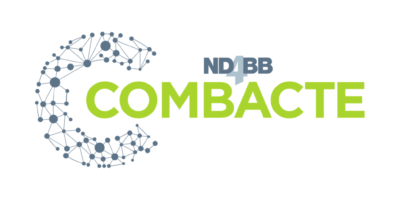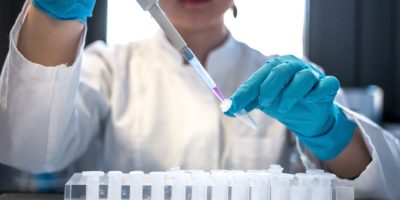A Day at the Office of CLIN-Net
COMBACTE’s clinical network, CLIN-Net, was established to efficiently conduct clinical trials focused on antimicrobial resistance. The network comprises 1,000 plus hospitals and is one of COMBACTE’s key projects. The CLIN-Net team works behind the scenes at the University Medical Center Utrecht in the Netherlands. The team is continuously maintaining and training the network and conducts site selection for clinical trials. In an interview with the CLIN-Net team, some members shared their experiences about their work and the importance of the network.
One team, one objective
CLIN-Net is a small team of project managers who work closely together in a fast-paced environment where new projects are always welcome. According to Lotte Reinhoudt, it is rewarding when the target number for a site selection is achieved on time!

“It is always a challenge to reach the target of the desired number of selected sites within strict timelines. With team effort we always do our utmost to reach the goals. When a site selection is closed we celebrate our successes and catch our breath to evaluate and discuss the lessons learned. But this brief pause is never long as we must always be ready for a new project.”
During the site selection process the team works closely with several parties, many with different interests within the clinical trials. To align all interests and expectations, the team always advises the partners on the best options by using their experience built-up over many years. The client’s wishes are always the priority, sometimes leading to new or previously experienced challenges for the team.

“I have performed site selections for very different studies, also involving hospitals from outside our network. No matter what the challenge is, you need to find your way and make it successful. You need to be flexible and open-minded as our network embraces very different cultures and backgrounds. You have to adapt to each situation and relate to people differently.”
Each team member has their own way to cope with these challenges. “Having a good relationship improves the response rate and response timelines” says Karin van Beek. Meeting people face-to-face is very important.

If a site doesn’t respond, the detective work begins. I will search for a contact on the internet, for example, via ResearchGate, a hospital website or published papers. This helps me to personalize the invitation for a specific PI or to find an additional email address that we did not have in our database. We also call sites, even though it is sometimes difficult to get past the receptionist if they do not speak English. When facing this language barrier, we often practice our first few sentences in the local language, which will probably be funny for the recipient to hear.
Benefits of the clinical network and its future in ECRAID
The COVID-19 pandemic created more awareness about the importance of networking and the need to share key information. Over the years, CLIN-Net has established a large clinical research network in Europe. Having this network was beneficial for successful site selections during the pandemic. According to Karin, the network was capable of handling multiple COVID-19 trials simultaneously with other current trials. In the future, it will be beneficial to further invest in the clinical network to create a solid clinical research infrastructure for infectious diseases. This will be at the core of ECRAID.
-
We all have one common goal: to improve patient healthcare. By combining our efforts in a smart and systematic way, we are able to come to results that we would never have obtained if we were to work individually. This collaboration is already happening within the current network, but ECRAID will help us to do this on an ever bigger scale.
Lotte Reinhoudt, CLIN-NET
Maintaining a high quality of work
All colleagues within the team work hard to improve and maintain the network’s high quality. When doing their job all colleagues bring something to the table, which makes this a formidable team.
Giuseppe has a solid overview of the performance of our sites by using different platforms in order to shorten timelines and to select the best performing sites. ‘My long-term vision is to have a centralized place where we can retrieve this information.’
Lotte has been working on bringing structure to the process of qualitative data integration within performance summaries. “We keep a close watch on site performance after the site has been selected together with the project manager. With the integration of qualitative data, the knowledge about participating sites expands.”
For Karin, it is important to acknowledge people’s efforts and contributions to the COMBACTE network. This makes everyone feel a part of our ‘family’. ‘I hope that people know they can contact me without any hesitation.’
Related updates

The Last of COMBACTE: COMBACTE-NET

Important Pieces Of A Puzzle
